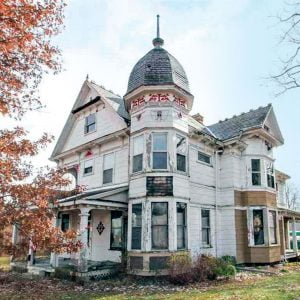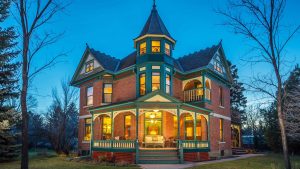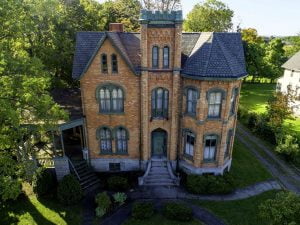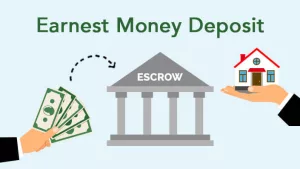Buying A Historic Home in New York Real Estate
Go Back To Previous PageThere’s no way to look around it: New York is a state that is filled to the brim with history. This includes famous landmarks in New York City, globally famed restaurants, and homes added to the National Register of Historic Places. Everyone has daydreamed about owning a sprawling Victorian mansion once in a while. It’s glamorous, at least at first glance. While most people tend to love buying a historic home, doing it isn’t as glamorous as you might think. Owning a historic home is not for everyone, nor should people treat it like it is. Before buying a historic home, you must know certain things that may dissuade you. Look for historic homes for sale in New York City, the state of New York, and anywhere else in the United States!
famed restaurants, and homes added to the National Register of Historic Places. Everyone has daydreamed about owning a sprawling Victorian mansion once in a while. It’s glamorous, at least at first glance. While most people tend to love buying a historic home, doing it isn’t as glamorous as you might think. Owning a historic home is not for everyone, nor should people treat it like it is. Before buying a historic home, you must know certain things that may dissuade you. Look for historic homes for sale in New York City, the state of New York, and anywhere else in the United States!
Buying a historic home is a thrilling experience. For those exploring the possibility of purchasing a house, there is nothing more enticing than an old home, especially if it’s listed on the National Register of Historic Places and in a historic district.
Historic homes give homeowners the chance to own a piece of history. You can embrace the character and stories of a beautifully crafted home. However, landmark homes also have particular issues that newer homes do not.
So, before you commit, you must understand the endless care and maintenance your home will require to keep it tip-top shape.
1. You Can’t Demolish a Historic Home in New York
If you were hoping to plow over the house to make it better and more modern, that’s a no-go. It takes serious paperwork to tear down once a place is deemed historic.
In most cases, you must go to court and have the house removed from the registry for your home to get torn down.
Besides, why would you do that? It’s a wrong move. You will insult lovers of the Revolutionary War, George Washington or Edgar Allan Poe fans, or those who appreciate the Greek Revival architectural style. What if somebody would destroy the Alice Austen house or the Morris Jumel Mansion?
2. Regulations for Remodeling a Historic Home in New York
You can’t demolish the home unless something drastic occurs. Therefore, you must also be aware that local authorities regulate renovations and upgrades. You can’t add certain upgrades, such as new windows or a specific type of siding.
This is because historic homes in New York state must keep their old-school look, which is part of what makes them historic.
Before you buy a home, ask yourself if you are okay with its current layout. If you are, are you all right with the exterior or the type of lighting that it has? If you aren’t, then you may need to skip it.
3. Help Is At Hand For Repairs
Old homes tend to break down or need rewiring to maintain structural integrity. For regular homes, this is a bad thing. But this is not necessarily a regular home. The good thing about getting a home listed on the National Register of Historic Places is that you often will be able to access notable organizations that will help you out with repairs.
not necessarily a regular home. The good thing about getting a home listed on the National Register of Historic Places is that you often will be able to access notable organizations that will help you out with repairs.
It’s in the best interest of the historic community around you to help you pay for repairs, especially if the home experienced a devastating blow to its structure. Most areas will have a community pitching in to help you. With that, you still should expect to foot most of the bill for your home’s repairs.
4. Historic Home for sale in New York State: It’s A Status Symbol
It’s important to realize that having an officially recognized historic home is a significant status symbol, particularly among society’s elite. People will expect you to steward the area’s local history, especially regarding your home. It’s an excellent way to get a foot in the door for major historical groups and communities that tend to treasure history.
expect you to steward the area’s local history, especially regarding your home. It’s an excellent way to get a foot in the door for major historical groups and communities that tend to treasure history.
Because it’s a status symbol to say that you have a historic home, you should expect to pay a little extra for the right to own that house. It’s also worth noting that living in a historic home is often a good investment. After all, the price of these will only go up as people begin to become increasingly leery of new buildings.
5. You Might Have A Haunting
If you’re a believer in the paranormal, then this should be a concern of yours. While not all historic homes are haunted, some have earned their reputation as a place of paranormal activity. In some states, you may also need to learn if the house has a “stigma,” like a purported haunting associated with it.
I can’t offer any advice here. If you suspect a home has a haunting, you can ask about it and maybe see if you can get a psychic to help. Otherwise, you may want to pass up on it if ghosts skeeve you out.
6. New York Might Subsidize Part Of It
This is a significant perk of having a historic home such as a carriage house. Many states in the Union have tax incentives to help ensure that landmark homes are well cared for. Authorities will love it if you open them to the public for visits.
New York will give you a 25 percent tax credit if your home has a barn to help incentivize the deal.
Certain municipalities might have additional incentives to sweeten the deal, including tax credits or funded bonuses. This is an excellent choice if you’re okay with putting a lot of investment into showing a home some love. Think of all those things when looking for historic homes for sale in New York City and State.
7. How to determine if buying a historic home is right for you
Unlike other home-buying experiences, falling in love with a historic home because of location, price, and charm does not mean it is the best purchase for you.
Ken Lyon, Associate City Planner and Historic Preservation Officer in Palm Springs, California, reminds potential buyers that someone who is not interested in learning the community’s history or who wants to modernize an older home should look elsewhere.
“There is a responsibility in owning a historically designated home in terms of maintenance and upkeep, and honoring aspects of the house that make it significant.”
Bottom line
Buying a home is a big purchase, no matter the age. There’s a lot more to consider. However, when purchasing a historic home, you’ll want to educate yourself about the property. You need to learn about any restrictions or guidelines in place.
Examine the house’s structure and maintenance needs as well as your budget.
But for the right person, all the challenges can be a fun project and labor of love.


